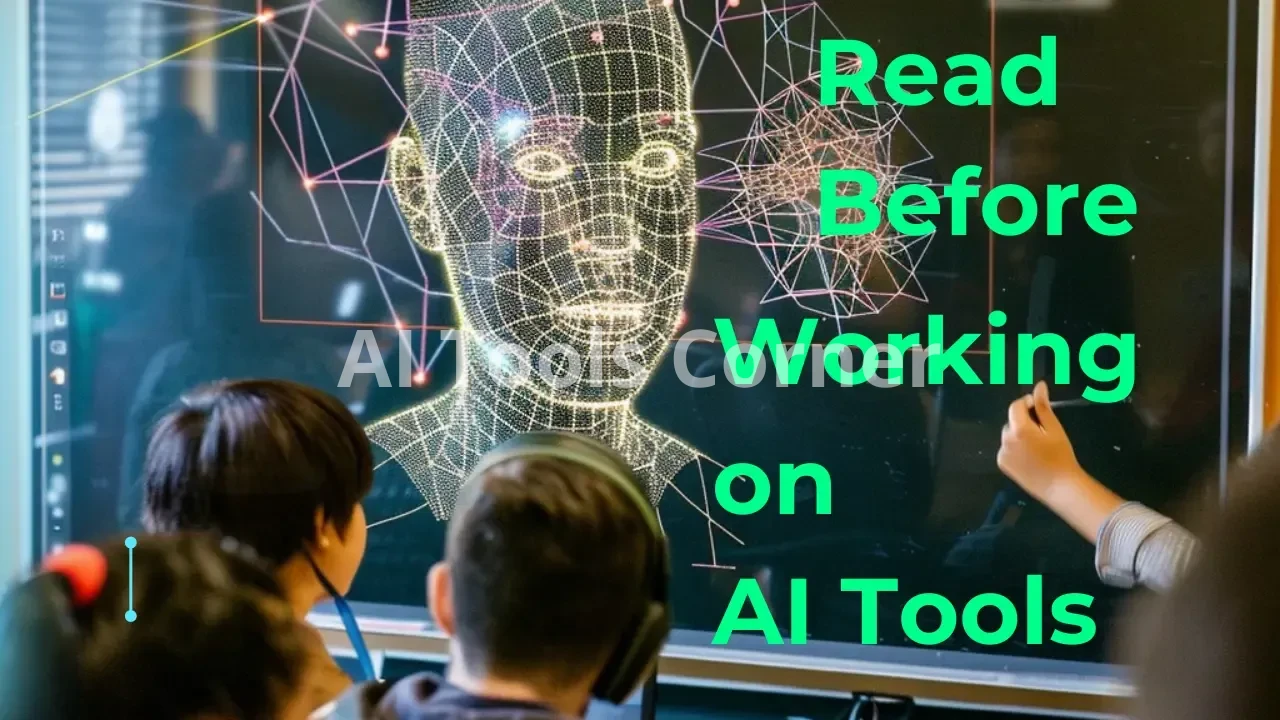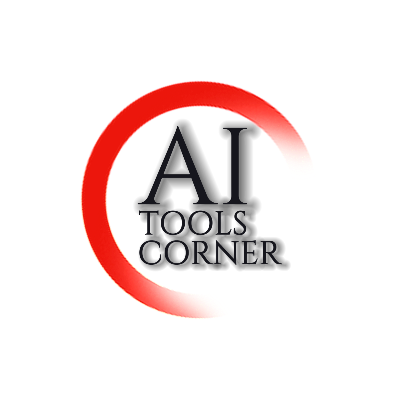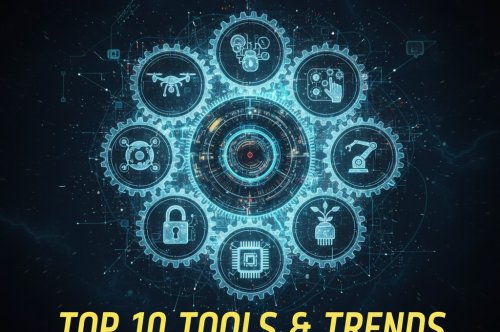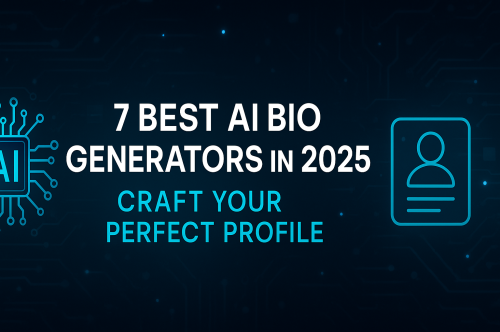Must Read Before Working on Any AI Tools: Essential Tips and Insights

Introduction
Artificial Intelligence (AI) has experienced substantial growth over the last few years, driven by technological advancements and the increasing demand for intelligent solutions across various sectors. This transformation has seen AI being used in diverse applications, such as virtual assistants like Siri and Alexa, self-driving cars, and predictive analytics software.
As a result, there has been an increase in the number of AI tools available today, each claiming superiority over the other. However, though these tools may make our lives easier, it is vital to recognize that dealing with AI requires a certain level of expertise and knowledge. Below are some key ideas/tips that you must consider before plunging into any AI tool.
1. Understand the Basics of Artificial Intelligence
AI generally encompasses a variety of technologies, including machine learning, natural language processing, and robotics. To work with any AI tool effectively, one needs to comprehend how these technologies function together to create intelligent systems.
2. Know Your DataTo
Data is the power source behind AI algorithms and tools. An AI tool can only perform well if it has accurate and relevant data. For example, as a user, one should be familiar with the type and quality of data required for specific tasks involving artificial intelligence and provide appropriate information that meets such conditions.
3. Be Realistic with Expectations
It might seem like they can do magic, but in reality, their potential is solely dependent on the data they have been trained on and its algorithms. Hence, setting realistic expectations is very important when it comes to working with them.
4. Keep an Eye on Ethical Considerations
The ethical issues surrounding AI need to be considered as it takes over more aspects of our everyday activities (Gage). There are numerous ethical concerns, especially regarding biased algorithms or possible job losses due to automation, which must be resolved before things get out of hand.
5. Continuously Learn and Improve
AI is a fast-moving field, and new tools and techniques are constantly being developed. You need to continually learn and enhance your AI skills to keep ahead of the game. This will help you work better with AI tools and also give you updated information on any ethical or legal consequences that may arise.
Factors to Consider Before Using AI Tools
Besides the above vital hints, there are a handful of factors you should look into before choosing and utilizing an AI tool. These include:
• Cost:
Some AI tools can be costly; therefore, you must assess your financial plan and ascertain whether the tool offers enough value for its cost.
• Integration:
Will the AI tool seamlessly fit with your current processes and systems?
• Technical Requirements:
Is this tool required to have any particular technical expertise or infrastructure?
• Support and Maintenance:
How about support and maintenance offered by this AI tool? Is there any team that deals with issues or concerns arising from it?
• User-Friendliness:
Is the AI tool easy to use? Does your team require any significant training to use it?
Best Practices for Working with AI Tools
To get the most out of any AI tools, here are some best practices to consider:
• Start by setting clear objectives, then choose a suitable AI tool for reaching them.
• Before embedding the system in your operations, ensure it has undergone proper testing.
• In case of failure or unforeseen results, have another way to execute your plans apart from using artificial intelligence.
• Always check how this device is working so that necessary adjustments can be made when they are required.
• Efficient use of appropriate technology in Artificial Intelligence.
Pros of Using AI Tools
By employing these modern technologies in the workplace, several positive results will always follow. They include but not limited to:
• It makes human beings more efficient than ever before because they can now perform many tasks quickly, unlike in the past when such things were considered impossible.
• It helps reduce errors, as machine learning techniques can make accurate predictions, enabling us to make informed decisions about certain issues.
• This ultimately saves time invested in more challenging and creative activities that have long been considered impossibilities.
• The most crucial thing about this technology is its ability to offer customers personalized service.
Cons of Using AI Tools
The following are the cons associated with the use of AI tools:
• Accuracy and quality of data provided.
• This may result in unfair treatment due to prejudice in the formulation of algorithms.
• Loss of jobs by the employees whose industry they serve specialize in.
• Morally acceptable means for making decisions using artificial intelligence.
Conclusion
AI tools can change our lives and businesses for good. However, we should be careful when using them because they possess capabilities and limitations that need to be understood. We should adhere to these critical pointers, consider salient points, and engage in best practices.
FAQs
What is the difference between machine learning and artificial intelligence?
Machine learning is a segment of artificial intelligence. Though machines can perform several smart tasks, this is called AI as a general concept, whereas machine learning refers only to AI applications in which systems can learn automatically and change themselves without being programmed directly.
How can I ensure the data I use is of good quality?
To ensure high-quality data, many steps must be taken, such as removing or correcting anomalies in data (data cleaning), validating data sources, and regularly updating datasets. Understanding how relevant the data is to your AI application and continuously checking for consistency also ensures high-quality data.
Are AI tools user-friendly for beginners?
This varies greatly depending on how user-friendly an AI tool might be designed to appear. Some are simple and have a graphical user interface so that even a beginner who lacks advanced technical knowledge can use them easily. In contrast, others are complex, requiring expertise and training.
What are some common ethical considerations when using AI?
Some typical ethical aspects include ensuring fairness and avoiding bias in algorithms, protecting users’ privacy, weighing potential job losses against societal impact, and making transparent decisions by an AI system.
Can AI tools replace entirely human jobs?
AI tools may perform many repetitive activities involving large volumes of information, but they cannot completely replace all human jobs; instead, they supplement human work, allowing people to concentrate on more complicated creative tasks demanding human judgment.
How can I keep my knowledge and skills in AI up to date?
Keeping up with the developments in the field entails continuous learning through online courses, webinars, and conferences; participation in communities and forums related to AI, reading industry publications; and trying out new tools and techniques as they emerge. Awareness of new ethical and legal concerns surrounding AI is also crucial. In short, staying up-to-date on the rapidly changing field of AI means keeping an open mind, being adaptable, and being willing to learn so that one’s skills improve with time. Keep exploring and experimenting with AI to unlock its full potential.






